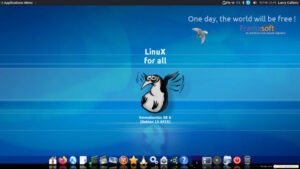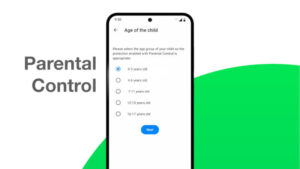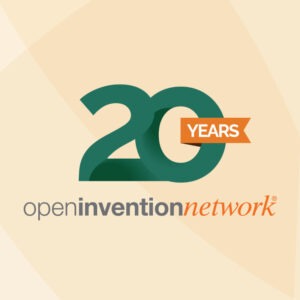Friday FOSS Week in Review
Cool beans, it’s Friday! Time to get out of the office and enjoy! Trouble is, here at FOSS Force the temps and humidity are so high there won’t be anything to do but stay inside and hug the air conditioning. Anyway, this week’s Friday review is mostly good news for a change, and that’s good news, no?
And the Winner Is …Finnix!
On Monday, Linus Torvalds announced the official release of the new 3.0 Linux kernel and on Tuesday Softpedia announced the first distro to use the new kernel as the default install:
“Dubbed Algoma, the Finnix 102 operating system was released at the end of last week, on July 23rd, and it features a smaller distribution size, support for Xen pvops and support for the 486 architecture.
There are lots of other Linux distros that use Linux kernel 3.0, but they are still in development. Therefore, we can say that Finnix 102 is the first stable Linux operating system that uses the brand-new Linux kernel 3.0.”
Finnix is designed for system administrators. It can be used to mount and access hard disks and partitions, probe networks and more. It’s small enough to fit on a single mini-CD, doesn’t include a GUI, office tools or sound support. However, it does seem like it would be a useful distro to keep around, just in case. Bill Dwyer has posted a review of this distro.
Anyway, they’re in the record books now, and I’ve got a new trivia question to throw at some of my know-it-all techie friends.
Red Hat & Microsoft Weigh-in on the Cloud
On Tuesday, Joe Panettieri at Talkin’ Cloud wrote that Red Hat’s VP Mark Bohannon had used a blog entry as a way of warning U.S. policymakers about the threat of vendor lock-in in cloud computing. Although no names were mentioned, it was pretty obvious that Bohannon was referring to (who else?) Microsoft:
“Those forces are showing up in numerous ways, including through steps by vendors to lock in their customers to particular cloud architecture and non-portable solutions, and heavy reliance on proprietary APIs. Lock-in drives costs higher and undermines the savings that can be achieved through technical efficiency. If not carefully managed, we risk taking steps backwards, even going toward replicating the 1980s, where users were heavily tied technologically and financially into one IT framework and were stuck there.”
Not surprisingly, it didn’t take long for Redmond to respond. On Wednesday, Paula Rooney reported on ZDNet that Gianugo Rabellino, Microsoft’s Senior Director for Open Source Communities, said that Redmond is (of course) all about openness:
“’Am I saying that openness doesn’t matter in the cloud? No, openness is extremely important [but] I argue that in the cloud the source code is the Terms of Use and the SLA,’ Rabellino said, referring to service-level agreements.
“He coined these terms — open surface and open core — to describe a continued commingling — or a blurring — of open source and closed source software that lies at the core of the enterprise and the cloud.”
In other words, their vision is open source until you save your work. After that you’ll be stuck with Microsoft, but you’ll learn to like them after a while, just like Patty Hearst learned to like the SLA.
Rabellino also said:
“We [Microsoft] have changed as a company. We have become more open. We want to work with open source communities.”
I think he’s saying they want to work with Novell and SUSE.
Open Cloud Initiative Principles
Coincidentally, The H Open reported on Wednesday that The Open Cloud Initiative was launched at the OSCON Open Source Convention in Portland, Oregon. This is a non-profit group that aims to get some kind of sensible handle on the cloud world before it gets completely taken over by the proprietary crowd. They’ve come-up with a document they call Open Cloud Principles (OCP).
According to The H Open:
“OCP mandates open formats and interfaces, interoperability and freedom of movement for users between systems. It expects vendors to cooperate with freely available, patent free or royalty free, standards and collaborate in open processes. Although open source does play a key role in the OCP, it only requires “multiple full, faithful and interoperable implementations” of standards with at least one implementation being open source, so as to provide users with one open alternative.”
If Microsoft and their lot can’t play within those rules, I don’t know what to think.
Mozilla Plans Mobile OS
The list of mobile operating systems utilizing Linux includes MeeGo, webOS, Android and more. On Tuesday Mobile Business Briefing reported that Mozilla has plans to develop a mobile operating system that will use the Gecko rendering engine as a platform for HTML5 apps:
“Mozilla’s key selling point with the project appears to be that it is truly open source. ‘We will do this work in the open, we will release the source in real-time, we will take all successful additions to an appropriate standards group, and we will track changes that come out of that process,’ the firm said. This appears a swipe at Google, which has been criticised by some within the developer community for withholding Android source code from the public until it is deemed ready.”
Ironically, Mozilla initially announced the project, called “Boot to Gecko,” on a Google Groups forum.
Cordia to Offer Hackable Tablet for $300
A $300 tablet from Cordia, reports Fuad Nahdi on Techonia, will come installed with Cordia HD, a MeeGo derivative, but the user will easily be able to install any OS with a Linux kernel, including Android. The hardware specs look good and the company seems committed to FOSS. I’d love to have a look-see at this one when it comes out.

Google Acquires Over 1,000 IBM Patents
It’s not yet clear if this is going to help in the Android patent wars, but it can’t hurt. Today, Don Reisinger reported on CNET that Google has purchased over 1,000 patents from IBM “that stretch across several different markets”:
“Google’s desire to acquire mobile patents could be due to the general belief that the company’s wireless patent portfolio is quite weak compared with those of its competitors. And that has helped a range of companies take aim at Google and its Android operating system.”
Again, no one (except presumably Google and IBM) seems to know whether there’s something in this purchase that’ll help in Android’s battle against the patent trolls – but this is a hopeful sign.
Well, that’s going to do it for this week. See you on Monday. Until then, may the FOSS be with you…
Christine Hall has been a journalist since 1971. In 2001, she began writing a weekly consumer computer column and started covering Linux and FOSS in 2002 after making the switch to GNU/Linux. Follow her on Twitter: @BrideOfLinux















